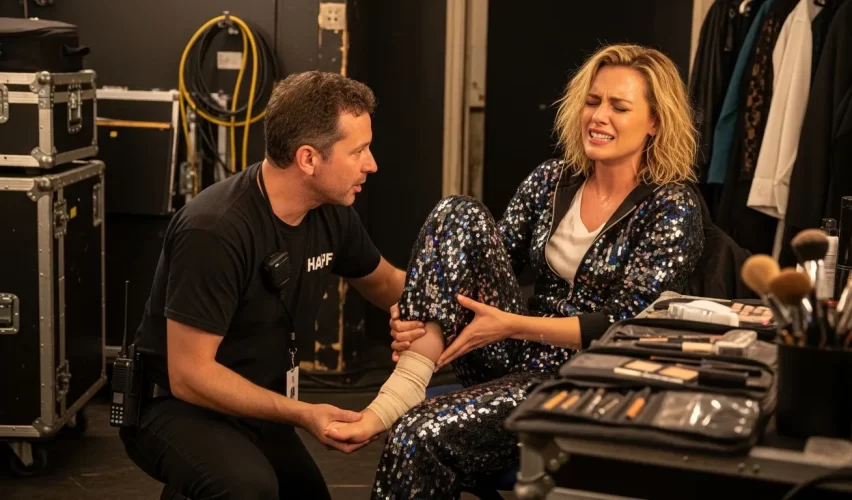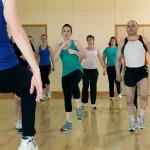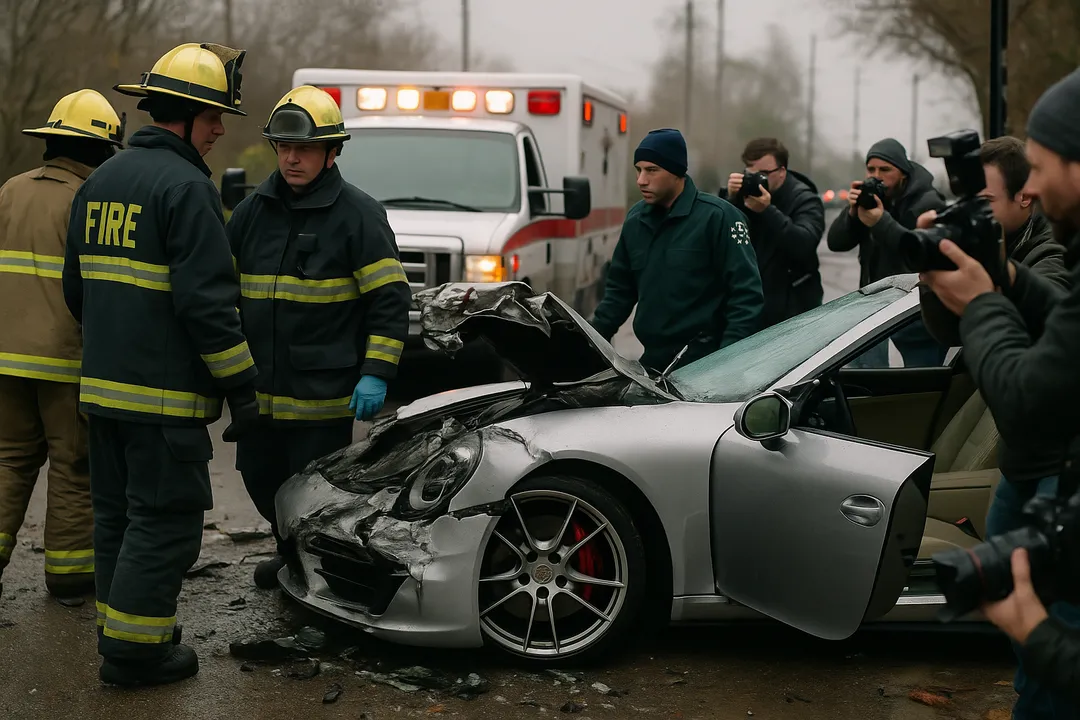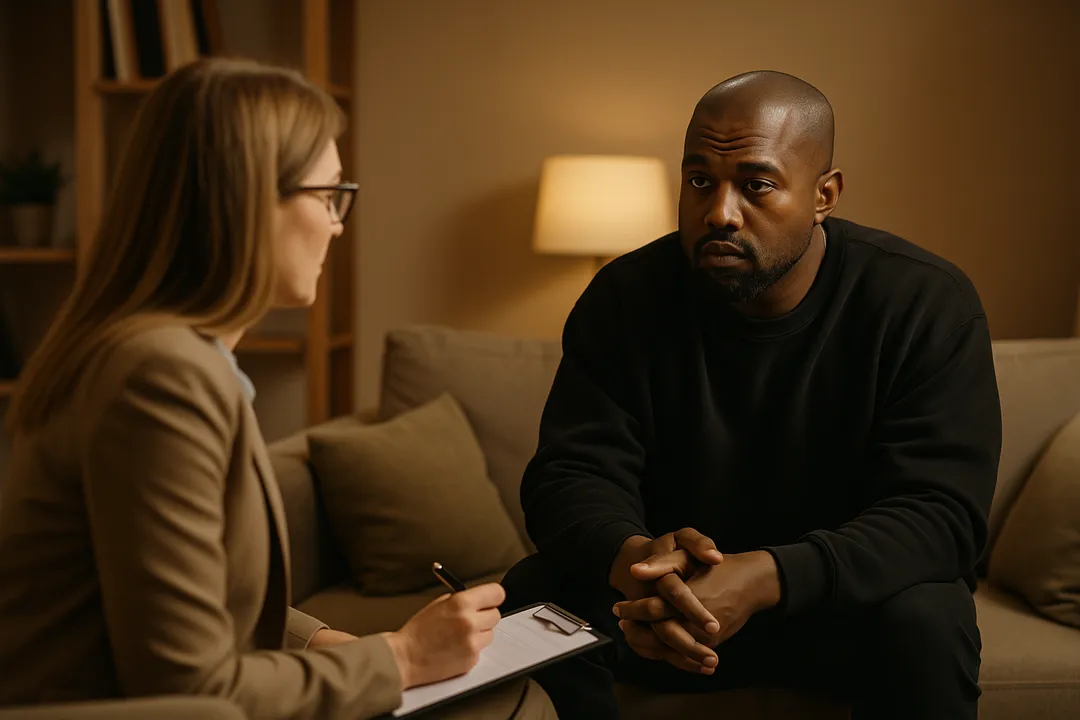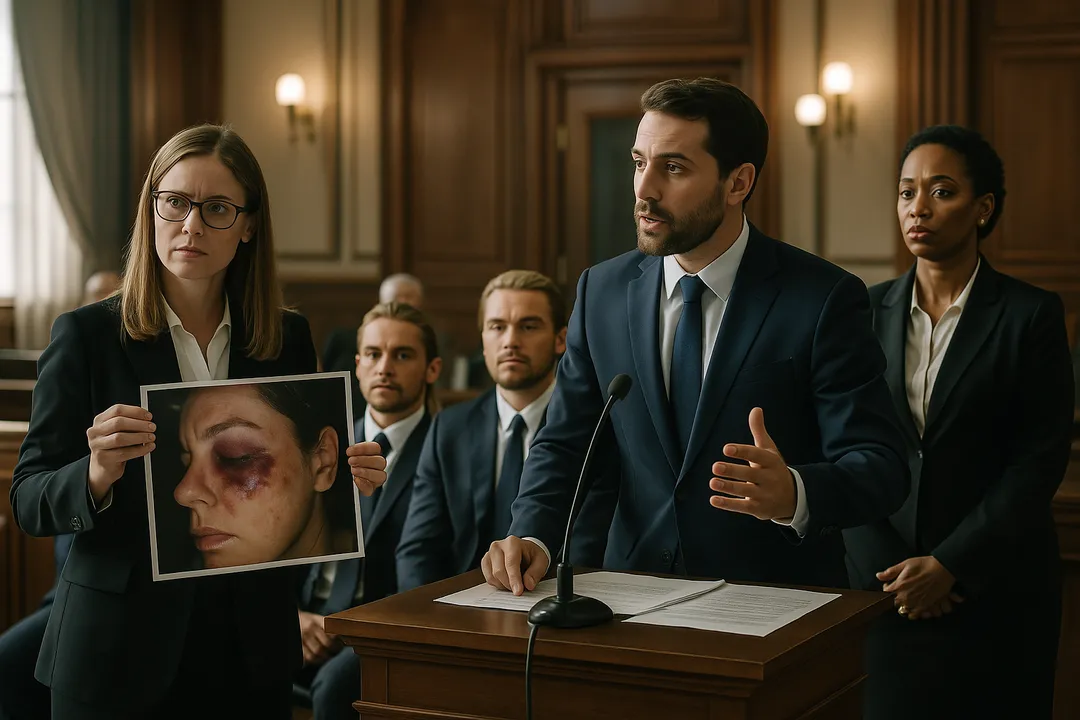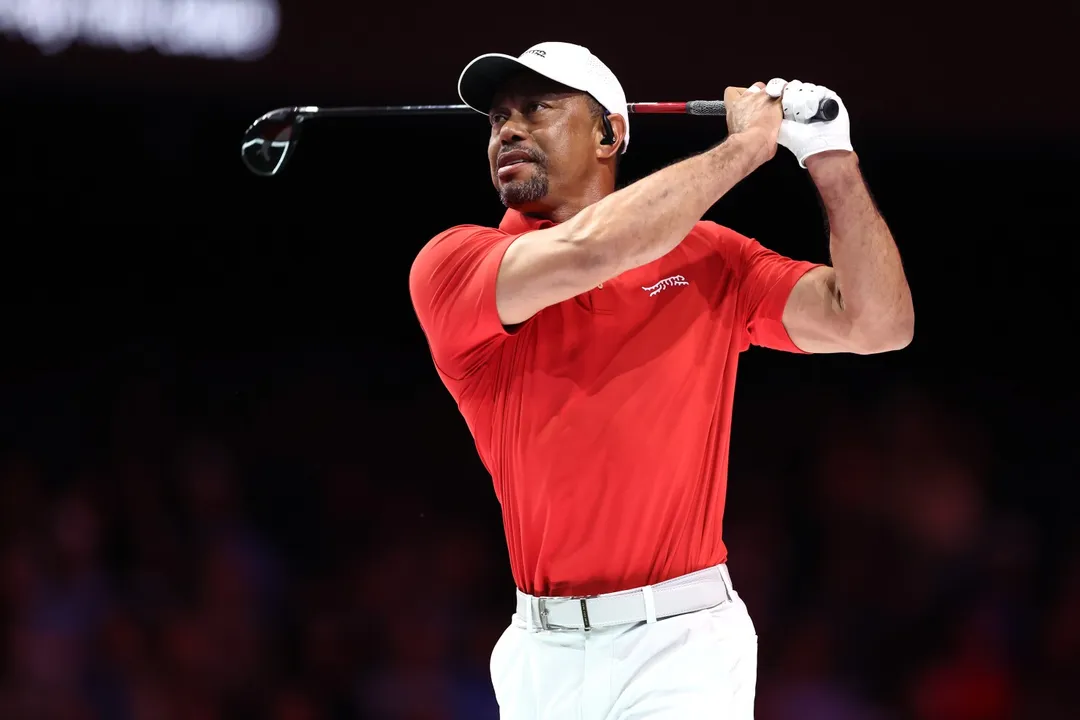Exploring the mental health struggles of injured celebrities shines a spotlight on the psychological challenges that often accompany high-profile injuries. When celebrities—especially athletes and performers—sustain physical injuries, the impact is not limited to their bodies. Mental health struggles like depression, anxiety, and chronic stress frequently develop or intensify during the recovery process.
Ignoring mental health in favor of physical rehabilitation can delay healing and worsen outcomes. Many injured celebrities experience a unique set of pressures: public scrutiny, career expectations, and the threat of lost identity. These factors can amplify feelings of isolation and emotional distress.
This article examines:
- The psychological toll of physical injury among athletes and performers
- Real-world examples, such as Johnny Knoxville’s journey
- Gender-specific vulnerabilities and the spectrum of mental health issues
- Current coping strategies and gaps in support systems
Understanding these struggles is essential for meaningful change in celebrity recovery culture.
The Psychological Impact of Physical Injuries on Celebrities
Physical injuries in celebrities—whether athletes or performers—often trigger a cascade of psychological effects that extend well beyond the initial trauma. The abrupt halt in career momentum, combined with public scrutiny, can lead to heightened experiences of depression, anxiety, and stress.
How Injuries Affect Emotions
Injuries act as a catalyst for emotional turmoil. For many celebrities, the inability to perform or compete introduces feelings of helplessness and loss of identity. This vulnerability frequently manifests as:
- Depression: Loss of purpose and reduced self-worth become pronounced when regular professional activities are suddenly removed.
- Anxiety: Uncertainty about recovery timelines and future career prospects fosters persistent worry.
- Stress: The relentless pressure to recover quickly, coupled with constant media attention, amplifies stress levels.
Comparing Injured Celebrities with Their Peers
Comparing injured celebrities with their non-injured peers highlights stark differences. Those sidelined by injury report significantly higher rates of depressive symptoms and generalized anxiety. The psychological impact is often magnified by external factors unique to high-profile individuals.
Performance Pressure and Recovery Expectations
Performance pressure and recovery expectations intensify these struggles. Public figures face not only personal disappointment but also the weight of fan anticipation and organizational demands. The expectation to return to peak form accelerates psychological distress, often pushing individuals to suppress mental health issues for fear of appearing weak or unreliable.
“The public only sees the comeback—they rarely see the isolation, doubt, and daily struggle behind it,” shares one Olympic athlete after a season-ending injury.
These layers create a unique environment where the psychological effects of injury are both complex and deeply rooted in the realities of celebrity status.
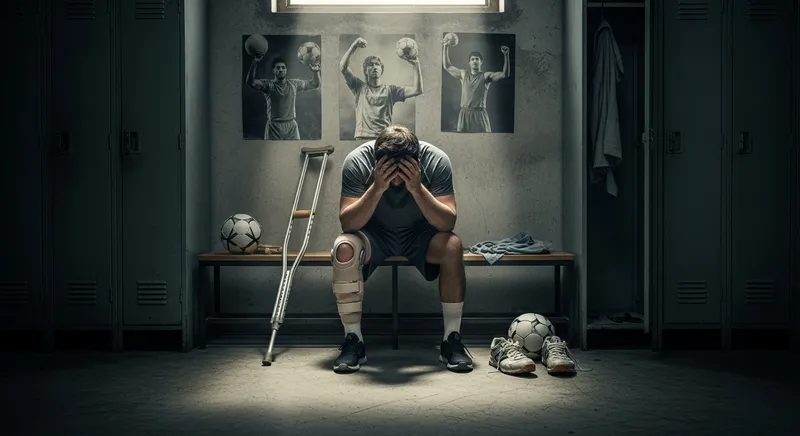
Mental Health Challenges Faced by Injured Elite Athletes
Injured elite athletes often face significant mental health challenges, such as anxiety disorders and depression. These issues can be especially severe due to the intense stress and pressure that come with being an elite athlete.
1. Prevalence of Mental Health Issues
Injuries can lead to higher levels of anxiety and depression among elite athletes. Studies show that injured athletes experience more severe depressive symptoms compared to those who are not injured. The sudden interruption of their training and competition routines often worsens these psychological struggles.
2. Impact of Career Disruption
An injury can disrupt an athlete’s career path, causing them to feel a deep sense of loss and confusion about their identity. For many elite athletes, their sport defines who they are and gives structure to their daily lives. When an injury forces them to stop competing, it can lead to a loss of this identity and significant emotional pain. Athletes may grapple with feelings of worthlessness, hopelessness, and anxiety about their future in the sport.
3. Identity Loss
Injuries not only affect an athlete’s physical abilities but also challenge their sense of self. This loss of identity can worsen mental health problems, making it difficult for them to recover both mentally and physically.
Understanding these challenges emphasizes the need for specialized mental health support for injured athletes. Such support can assist them in navigating the complex emotions that arise after an injury.
Case Study: Johnny Knoxville and the Mental Health Consequences of Repeated Injuries
Johnny Knoxville, known for his dangerous stunts in the “Jackass” series, has a long history of serious injuries. His career includes numerous broken bones, concussions, and other physical traumas due to high-risk activities performed for entertainment.
Multiple Concussions and Mental Health Effects
Knoxville has suffered several concussions over the years. The cumulative effect of these brain injuries has had a profound impact on his mental health. He has openly discussed his struggles with depression following these incidents. The repeated trauma to his brain led to significant psychological distress, highlighting the severe consequences of such injuries.
Raising Awareness Among Stunt Performers
Knoxville’s experiences have helped shine a light on the mental health issues faced by stunt performers. His candidness about his mental health challenges has increased awareness and encouraged conversations about the need for better support systems for those in similar professions.
Knoxville’s story exemplifies the link between physical injuries and mental health struggles. By sharing his journey, he continues to advocate for greater attention to mental well-being among injured celebrities, particularly those involved in high-risk activities.
Gender-Specific Mental Health Vulnerabilities Among Injured Celebrities
Female athletes often face unique challenges when dealing with injuries, particularly in sports that emphasize thinness or low weight. The pressure to maintain a certain body image can lead to an increased risk of eating disorders such as anorexia and bulimia. This sport-related stressor not only affects their physical health but also has severe implications for their mental well-being.
Increased Risk of Eating Disorders
Sports like gymnastics, figure skating, and ballet place a high value on lean physiques, making female athletes more susceptible to developing unhealthy eating habits. These disorders can be exacerbated by the stress of injury, which might force athletes to take time off from training and competition, disrupting their routines and heightening body image concerns.
Broader Implications for Female Celebrities
The mental health struggles arising from sport-related pressures extend beyond athletes to other female celebrities. Those in the public eye often face scrutiny over their appearance, leading to similar vulnerabilities when they experience injuries. The combination of physical recovery and the pressure to maintain a certain image can intensify feelings of anxiety, depression, and stress.
Understanding these gender-specific mental health vulnerabilities is crucial in developing effective support systems for injured female celebrities. Addressing both the physical and psychological aspects of recovery ensures a holistic approach to their well-being.
Range of Mental Health Issues Beyond Depression and Anxiety
Injured celebrities often face a wide range of psychological challenges beyond depression and anxiety. Here are some common mental health issues they may encounter:
Burnout
Burnout is a common issue, especially among those who have endured long-term physical strain or repeated injuries. It can manifest as emotional exhaustion, reduced performance, and a sense of detachment from their profession.
Panic Disorders
Panic disorders are another significant concern. These can be triggered by the stress of injury recovery, the fear of re-injury, or the pressure to return to peak performance quickly. Panic disorders often present as sudden episodes of intense fear accompanied by physical symptoms such as heart palpitations and shortness of breath.
Social Anxiety Disorder
Social anxiety disorder is also prevalent among injured celebrities. The constant public scrutiny and high expectations can exacerbate feelings of inadequacy and fear of judgment, impacting their social interactions and public appearances.
Different mental health conditions manifest depending on individual circumstances and the type of injury. For instance:
- Athletes with career-threatening injuries may experience identity loss and profound psychological distress.
- Performers who rely heavily on their physical abilities might struggle with body image issues and self-esteem.
- Those facing long-term rehabilitation may deal with chronic stress and frustration.
Understanding this range of mental health issues is crucial for providing comprehensive support to injured celebrities. Addressing these varied challenges requires tailored interventions that consider the unique pressures and experiences of each individual.
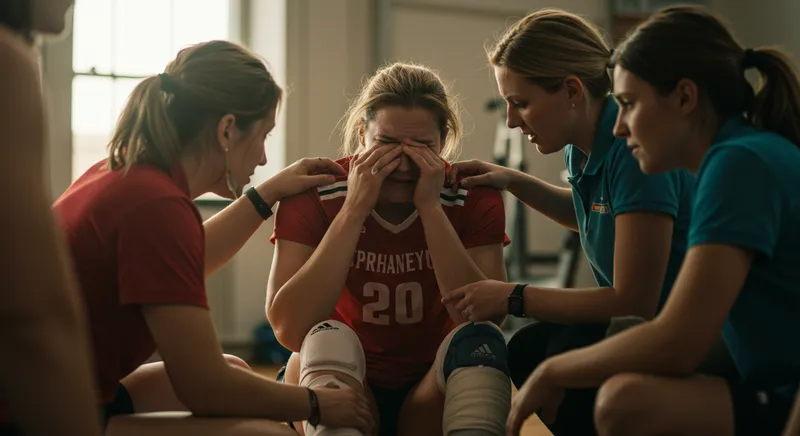
Coping Mechanisms and Support Strategies for Injured Celebrities
Injured celebrities often employ various coping strategies to manage their mental health struggles. These methods play a crucial role in maintaining psychological well-being amid the challenges of recovery.
Problem-Solving
This approach involves actively addressing issues related to injury and mental health. Celebrities might work with therapists to develop practical solutions for their challenges, setting realistic goals for recovery and adapting to new limitations.
Social Support
Leaning on friends, family, and professional networks provides emotional comfort and practical assistance. Engaging with support groups or communities of individuals facing similar struggles can also offer a sense of solidarity and understanding.
Cognitive Reframing
This technique helps injured celebrities shift their perspective on their situation. By reinterpreting negative thoughts and focusing on positive aspects, they can reduce stress and improve mental resilience. Therapists often guide this process, helping individuals find new meaning and motivation despite their setbacks.
Effective coping mechanisms are essential in exploring the mental health struggles of injured celebrities. Each method offers a unique way to navigate the psychological impact of physical injuries, contributing to a more holistic recovery process. These strategies highlight the importance of a comprehensive support system in addressing both the physical and mental health needs of injured celebrities.
Current Gaps in Intervention Research and Need for Enhanced Mental Health Support Systems
The connection between injury and mental health in celebrities is still not fully explored, especially when it comes to research on interventions. There is a significant lack of studies specifically designed to assess how effective targeted interventions are for injured celebrities. Most existing research either looks at the physical aspects of recovery or general mental health trends, leaving a gap when it comes to personalized strategies for this unique group.
Key gaps include:
- Limited data on effective interventions: Few clinical trials or long-term studies investigate which mental health support systems actually benefit injured celebrities facing career-threatening injuries.
- Lack of specialized professional help: Resources such as sport psychologists, trauma counselors, and peer support programs are often not systematically integrated into rehabilitation protocols for high-profile individuals.
- Inadequate representation in research: Many intervention strategies are based on data from the general population or non-celebrity athletes, leading to a one-size-fits-all approach that overlooks the distinct pressures faced by public figures.
- Barriers to accessing confidential help: Celebrities often hesitate to seek professional help due to stigma, privacy concerns, or fear of negative publicity. This creates an additional barrier not commonly addressed in standard support systems.
Addressing these gaps requires a concerted effort to develop evidence-based interventions and build robust, confidential mental health support systems that cater specifically to the needs of injured celebrities.
Conclusion
The mental health struggles of injured celebrities are an urgent issue that demands increased attention and resources. By acknowledging the complex relationship between physical injury and psychological well-being, we can foster a more supportive environment for those affected. Mental health awareness and targeted support for injured celebrities are crucial steps toward their holistic recovery. It is imperative to advocate for enhanced mental health support systems and intervention research, ensuring that every injured athlete and performer has access to the care they need.


